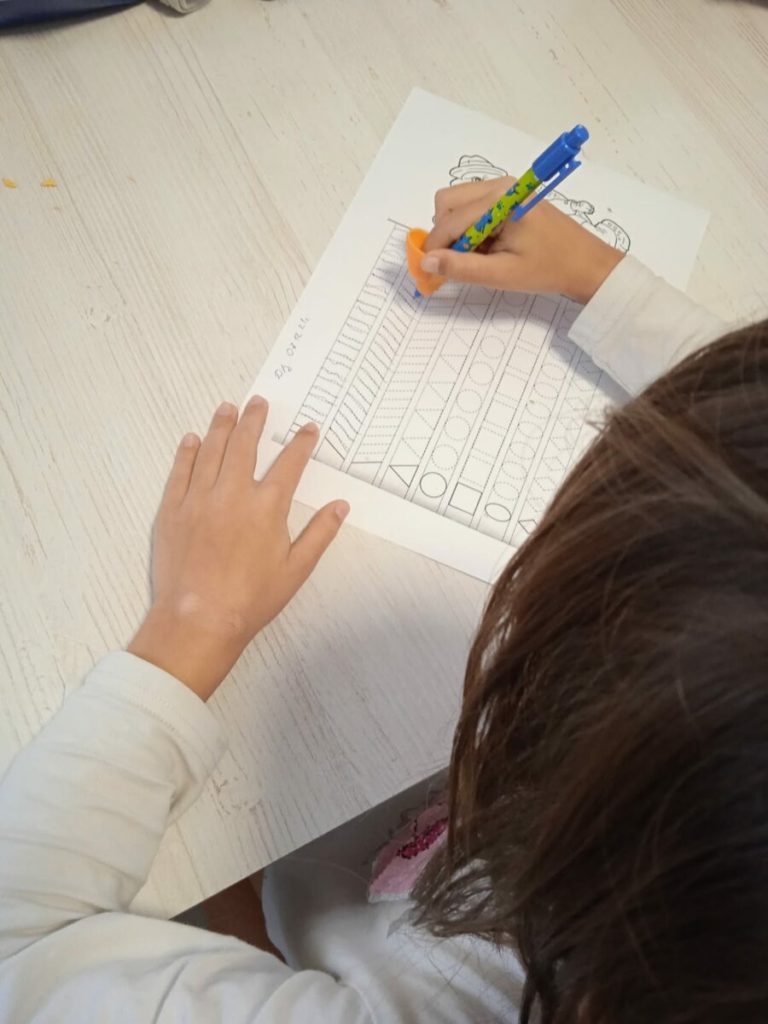Learned helplessness of autistics

Good day! Last week I watched myself while Alice was getting dressed for school. I sat across from him and by an effort of will remained in place. I could feel my muscles twitching, as I bent down to help her. Alice knows how to dress herself. She still has a hard time with buttons, does not always cope with the lock dog, but generally copes well. If in the evening, when we are going to ride before going to bed in the car, I don’t pay so much attention to the process of dressing her, then before school I really want to help. In the evening she dresses herself, we are not in a hurry, I can finish some things, watch a movie while she is getting ready. Even if the process takes a long time and she will not look very neat, I take it calmly, there is no hurry for us, and in the car no one will see how perfectly Alice’s pants or jacket are worn. Before school, the situation is different. 15 minutes before departure, we begin to gather and in a limited time, I begin to help Alice. I adjust my tights if she’s wearing them crookedly, hand her a shirt, etc. And suddenly an idea dawned on me, or my eyes saw the light, I don’t know, but I realized that I didn’t give her the opportunity to do many things on her own. Due to the fact that I allocate 15 minutes to get dressed and as a result I start to rush her or do something for her. And the example with clothes is not the only one. Of course, I try to make her do more by herself. Very often I make comments to my grandmother, who is ready to do everything for Alice in general. At the same time, I’m so used to the fact that she can’t do everything herself that I don’t even give her the opportunity to try.
Now I try to stop myself and it’s very difficult. What Alice needs half an hour of time, I can do in a couple of minutes, and wait and watch as she twists and turns this ill-fated jacket or tries to pull it backwards, and then sits and ponders what’s wrong, it’s hard. Not in the sense that I feel sorry for her or it’s hard for me mentally, I just want to do everything myself and quickly at some almost reflex level. And, of course, I want to help her to make it easier. But the more I help her, the less she knows how to do herself. And I try to remind myself of this constantly.
Recently, Alice has learned to knock on the door with her fist. Since her hands are weak and fine motor skills are hard to fold her hand into a fist and then knock on the door with her knuckles, she could not. After our nightly walks, I began to help her fold her fingers into a fist and knock on the door to open it for us. It turned out badly. My fingers were moving apart all the time, and it hurt my knuckles to knock on the door. After a week of trying, I was already completely sorry for her and decided to knock myself, but then I stopped myself, because it was a matter of a minute and we continued. After about 3 weeks, Alice learned to hold her fingers in her fist and hit the door with her knuckles so that she could be heard in the house. Of course, it’s still knocking weakly, but it’s knocking! And my joy at her success gives me the strength to continue. Now we are fighting with buttons, it is far from ideal, but there is progress.
And I understand that it is I who can teach her these simple actions, not a defectologist or a teacher, but me. And these actions may be useful to her to a much greater extent than mathematics.
Recently, I have been very inspired by the example of a training apartment for children with special needs that exists in Novorossiysk. By the way, thank you very much, because it was from your comments that I learned about her. There, grown-up children are already learning to live independently, serve themselves, cook, eat, clean and generally be independent. And I understand that often parents, unknowingly and unwittingly, limit the possibilities of children. This is especially true for those whose physical or mental capabilities are already limited. Wanting to make their life easier, more pleasant, to compensate, to love, to protect them from failures – there can be a huge variety of motives, we ourselves make them dependent on us. There is even such a term as “learned helplessness”. A very vivid definition and very sad. And, of course, it would be nice if someone showed us what our excessive care looks like from the outside.
In this sense, our defectologist helps me a lot, who always says straight out what I’m overreacting, but she also doesn’t see how we behave at home. At home, the eldest son usually puts us in our place, he treats Alice like an ordinary younger sister and often stops me, and even more often my grandmother, and says that she can do it herself. Thanks a lot to him for that!
Have you ever caught yourself thinking that you are doing something for your child that he may well be able to do himself?
Comments: